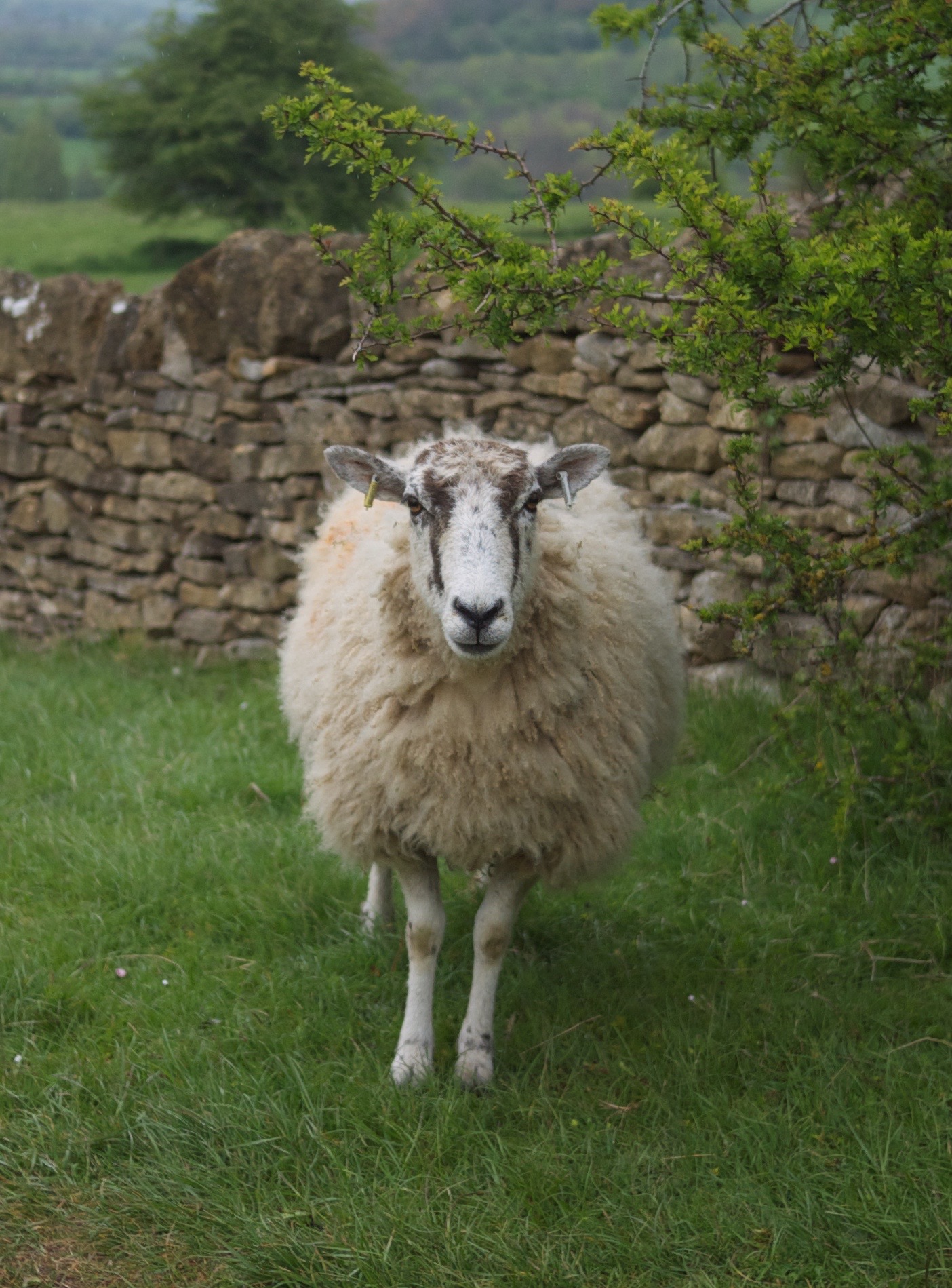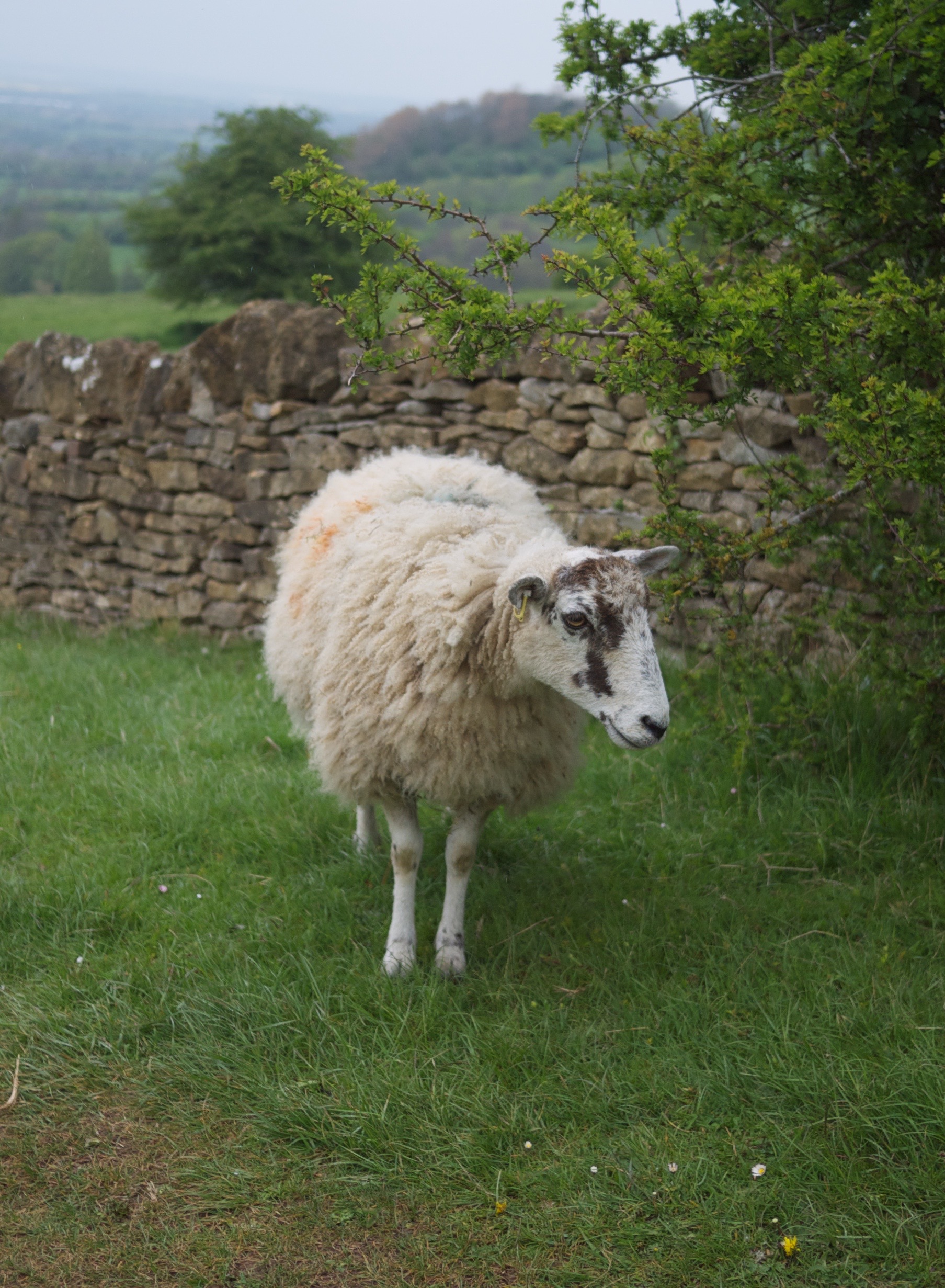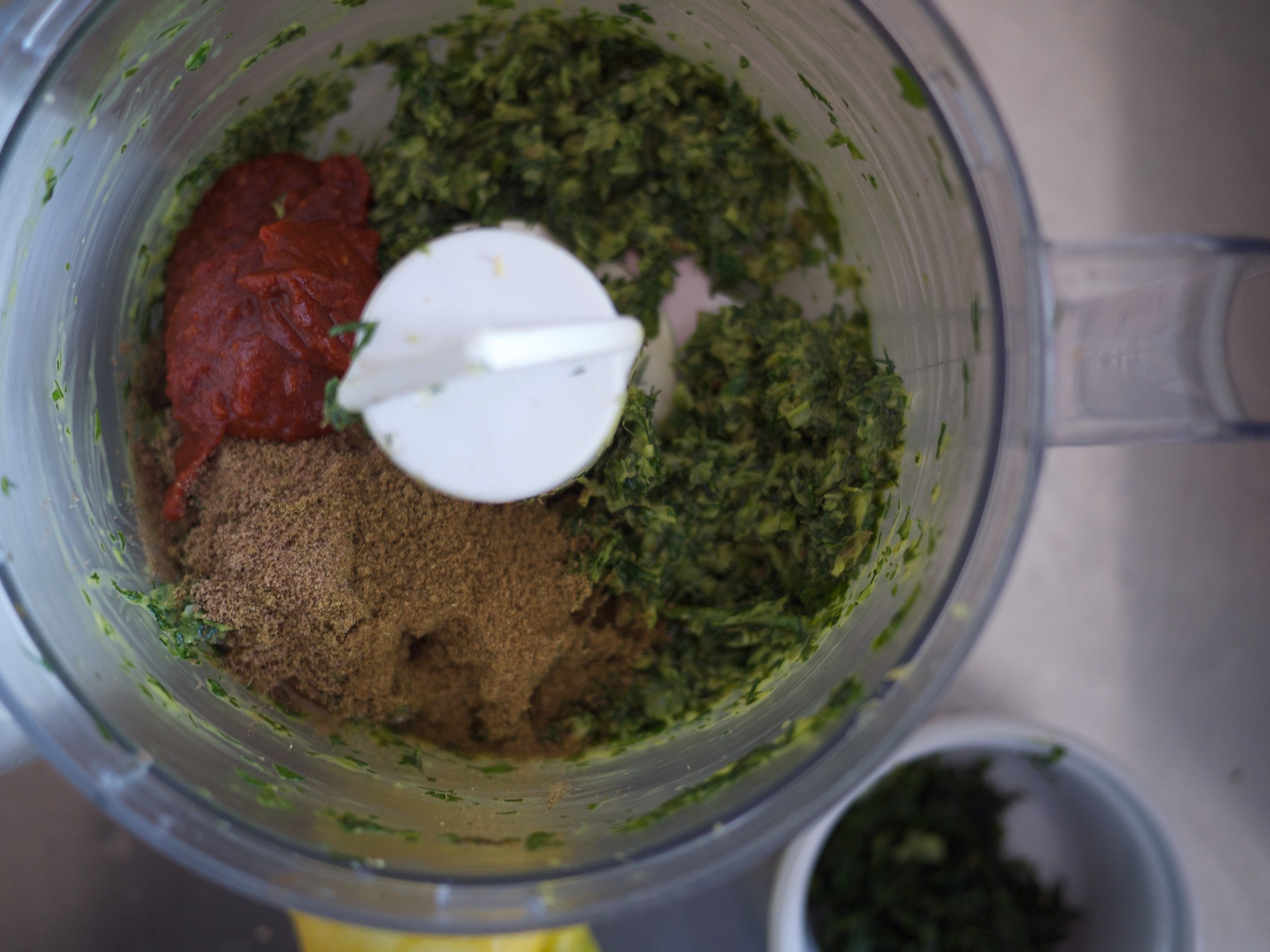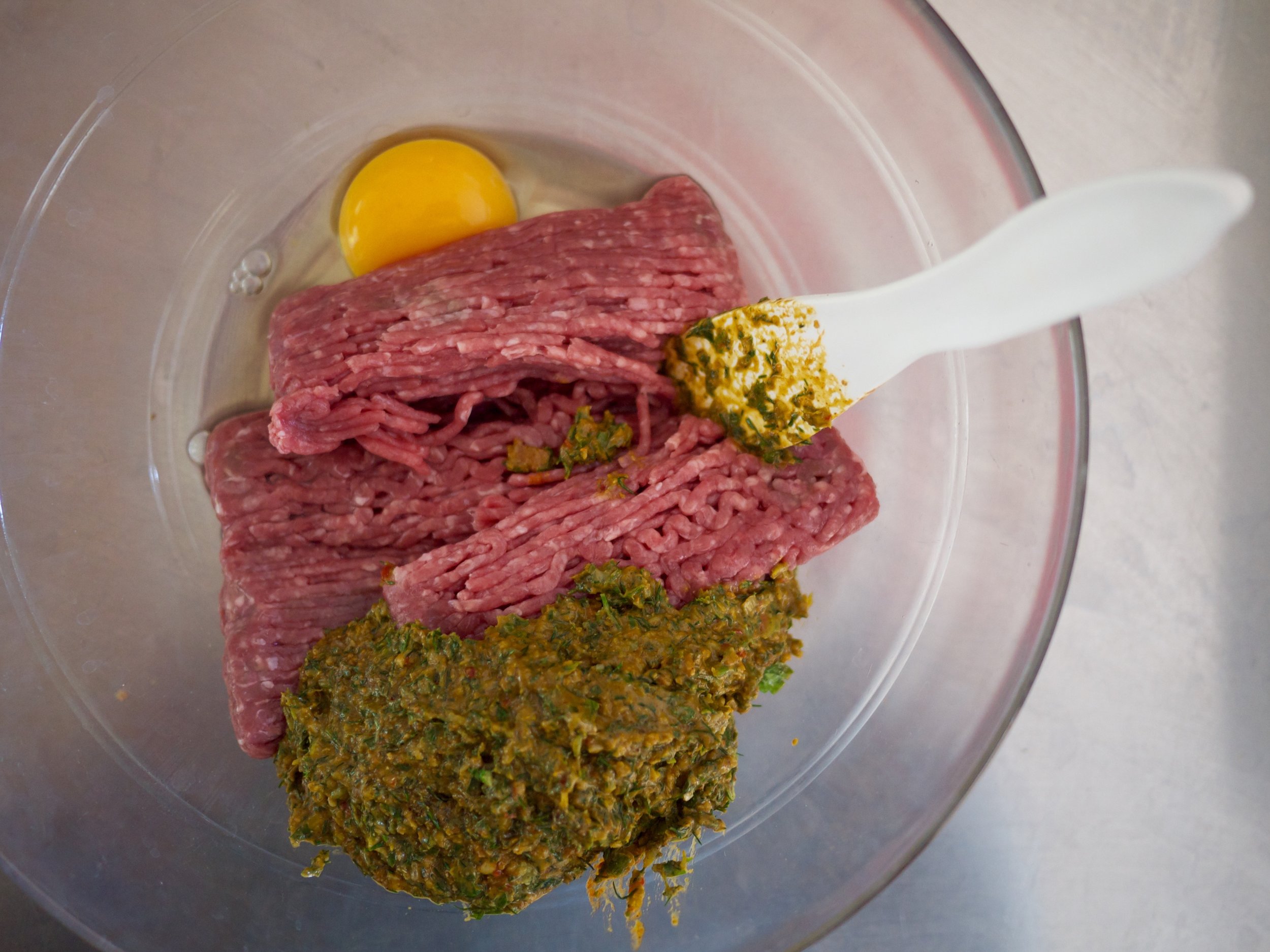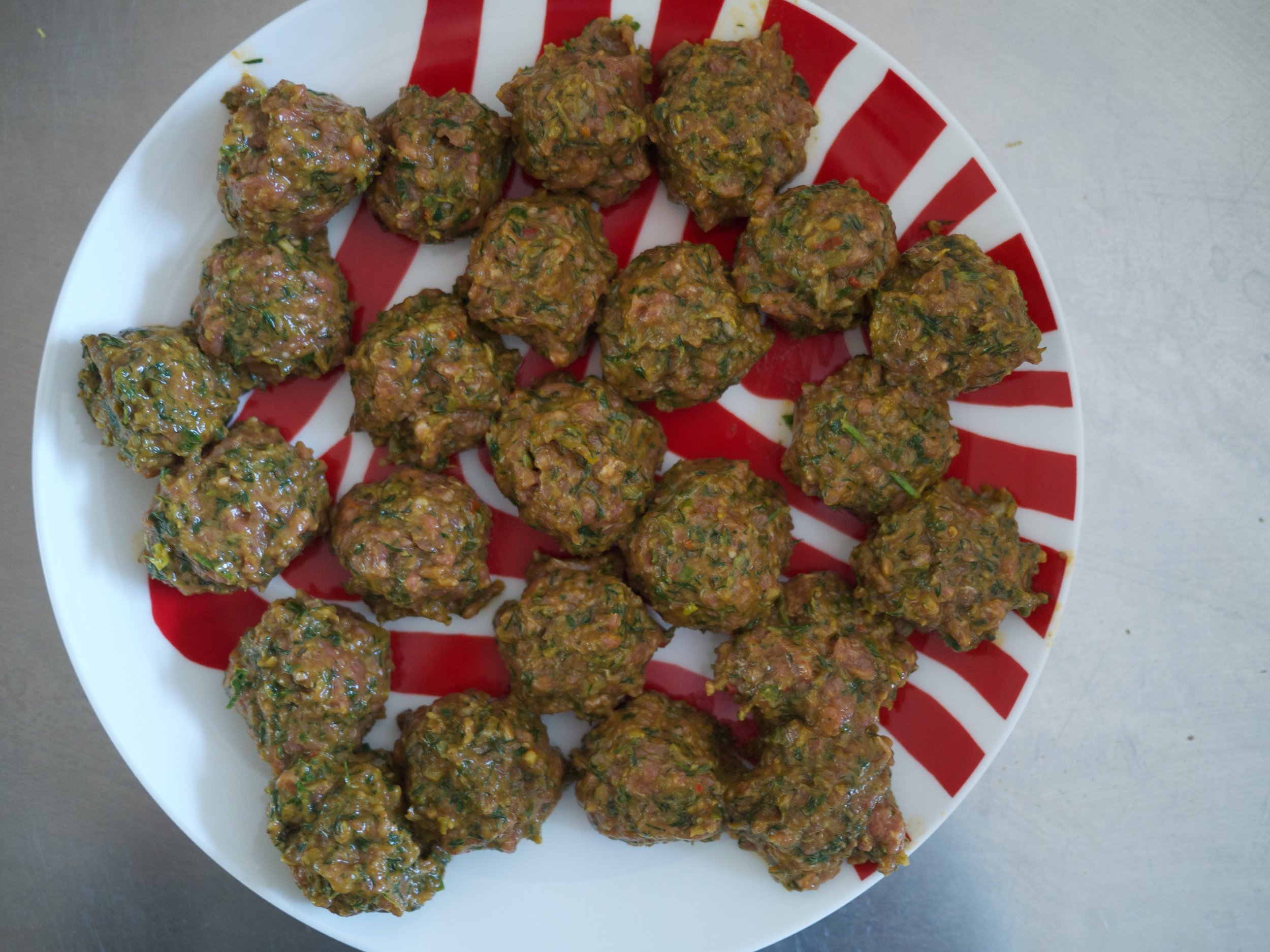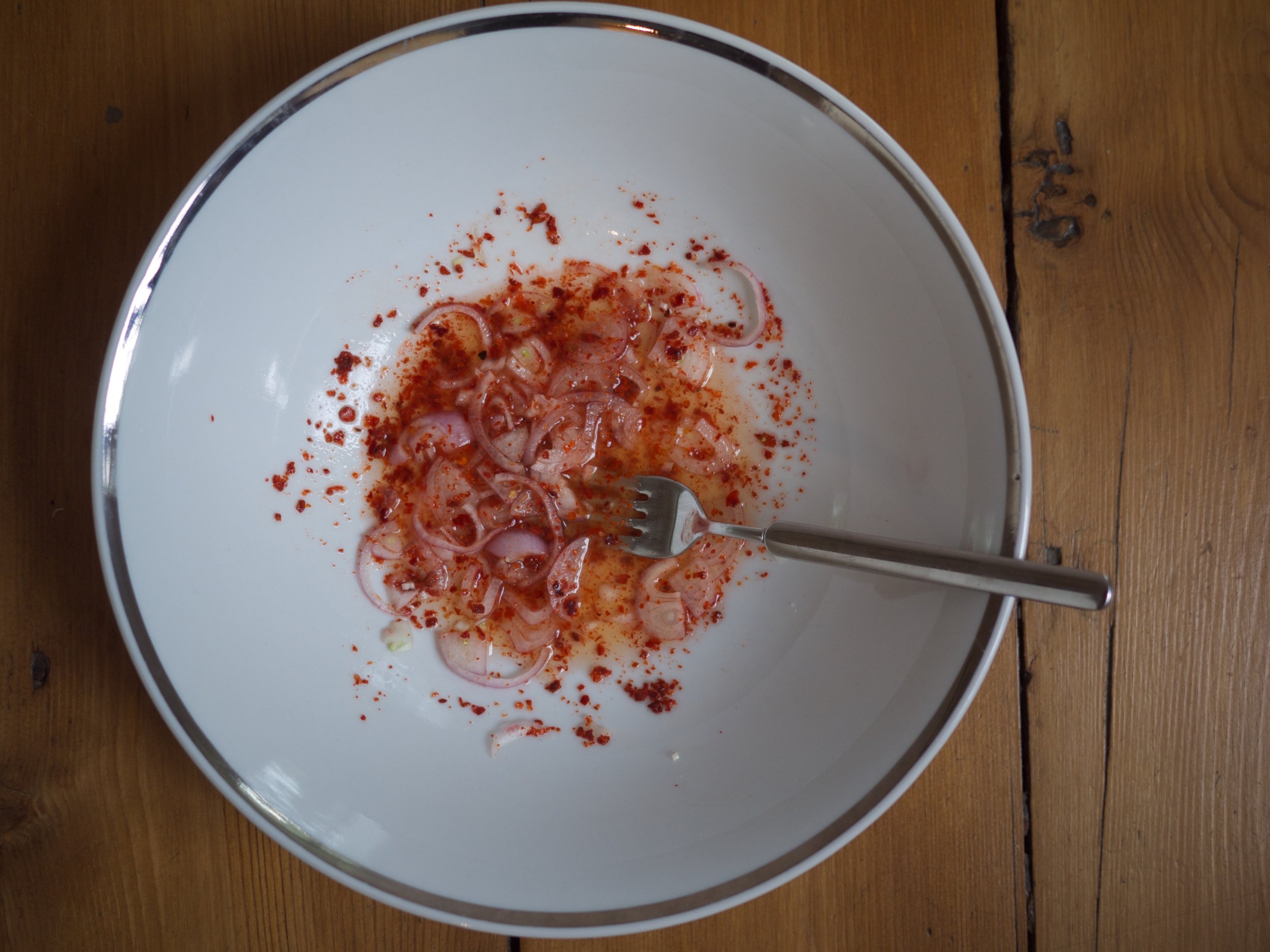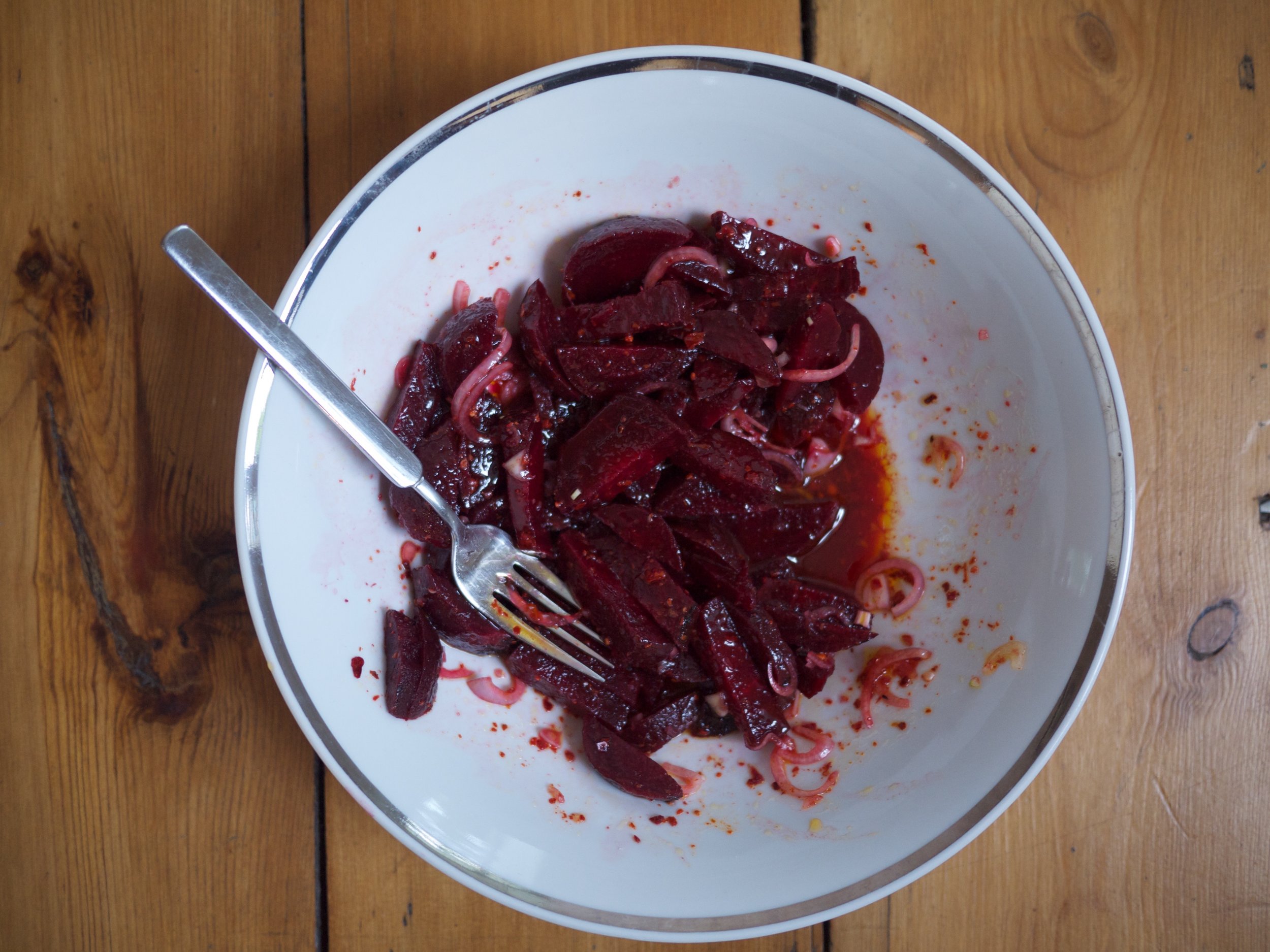One thing I love about cooking in the UK is the accessibility of different ingredients. One local favorite is my beloved pul biber, chili flakes from Turkey. Harissa here comes in three varieties: red, green, and rose petal. Another constant is ground lamb. This isn't a surprise—I have seen more sheep in the last month than in the rest of my years combined. Encountering them en masse while walking on various country footpaths, I feel confident in saying that English sheep seem very happy.
But even in the US, lamb is an ingredient I reach for often. Because of its relative unpopularity, I like to think that American lamb is of higher quality than supermarket-variety ground turkey and beef. And of course, it’s much tastier. Some people talk about gaminess in lamb, but I don’t taste that—just a richness and umph. And because of that extra strength in flavor, it can stand up to other hearty flavors, like strong cheese, warm spices, and chilis.
A very noble beast.
Often I’ll make lamb meatballs. Leg of lamb or cubed lamb for stew takes a bit longer to cook, and lamb chops are a bit of a treat, financially. But ground lamb is relatively affordable, and wonderful for quick meals.
Lamb meatballs are delicious Greek style, braised in a cinnamon-heavy tomato sauce, topped with feta cheese—that's my go to. But for a change of pace, I tried a North African bent this time, with dill, mint, parsley, spices, and harissa. I served them over orzo with herby yogurt and pomegranate seeds. While the pomegranate seeds might seem like a pretention, they are weirdly vital to this dish—they add a bright, fruity juiciness and crunchy texture that really contrast with the soft, spiced lamb.
I made a salad alongside with another ingredient that is easily found here, but starting to show up in the states more and more: shrinkwrapped, precooked beets. You could used canned ones in a pinch, or roast your own. I marinated mine in lemon juice, olive oil, shallots, salt, and pul biber. They can sit there all afternoon; then at the last minute, toss with arugula and feta.
One last opinion about the meatballs. Even if you aren't obsessed with waste, like me, it’s bordering on profane to not make a quick sauce out of the brown bits left in the pan here. It's a good way to gently cook them all the way through, if needed, or an easy way to heat them up—plus it basically cleans your pan. I was out of white wine, but half of a bouillon cube and water works. Earthy pomegranate molasses would have added a little complexity and acidity* and tied nicely with the fresh pomegranate; instead I used a bit of balsamic vinegar and honey. Obviously, this sort of sauce is flexible: basically just dissolving the brown bits and balancing with salt (bouillon), acid (wine/vinegar/pomegranate molasses), and sweetness (pomegranate molasses/honey). Experiment. When it tastes good, pile it all on a platter, dress it up, and enjoy.
Lamb Meatballs with Pomegranate and Yogurt
- Large handful each of dill, parsley, and mint
- 1/2 to 1 cup yogurt
- Salt
- 3 scallions, roughly chopped
- 3 garlic cloves, roughly chopped
- 1 to 2 T harissa
- 2 t cumin
- 2 t coriander
- 1 piece stale bread or 1/4 cup breadcrumbs
- 1 egg
- 1 pound ground lamb
- Olive oil
- 1/2 bouillon cube
- Splash of balsamic vinegar
- Honey, to taste
- Pomegranate seeds**
In a food processor, process the herbs until finely chopped. Remove about 1/4 cup and add most to the yogurt with a pinch of salt and refrigerate; reserve the remaining tablespoon or two for garnish later. To the remaining herbs in the processor, add scallions, garlic, harissa, cumin, coriander, 2 t salt, and the torn up bread or breadcrumbs. Process until fine. Add to a bowl with the lamb and egg and mix with your hands until incorporated. Form into 2-bite meatballs and put on a plate—they’ll be very soft and barely able to hold their shape. Freeze for an hour. (This will help them stay together when fried.)
Heat 2 T olive oil in a large pan, then carefully add the meatballs. Fry on all sides until dark brown, turning carefully. Remove the meatballs to a plate, and add half of a bouillon cube and about 1/2 cup water to deglaze the pan. Add a splash of balsamic vinegar and a squirt of honey; cook down until slightly thickened. Taste and reseason as necessary. Add the meatballs back and cook on low until hot and cooked through. Serve the meatballs and sauce over orzo and top with the herbed yogurt, pomegranate seeds, and reserved herbs. A marinated beet and feta salad is a nice side.
* There are a few limits I put on myself when stocking the cupboard for only three months—and unfortunately pomegranate molasses did not make the cut.
** I added an ingredient list because I'm working on a couple of book projects and wrote one without thinking. But usually I skip it. Do you all prefer it? I'm curious.
*** Forgive me for the true weirdness of the title of this post. It's an obscure reference to a Sargent painting of bucolic English countryside in early evening light, titled Carnation, Lily, Lily, Rose. I think the sheep made me think of it. It turns out that Sargent lifted it from a song whose refrain asks, "Have you seen my Flora pass this way?" And the answer is "Carnation, Lily, Lily, Rose."

